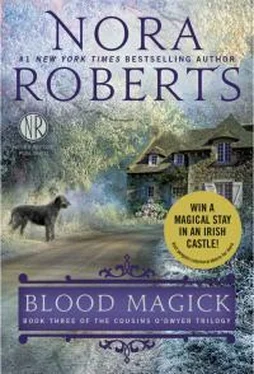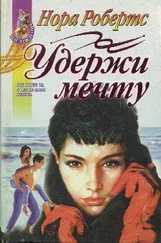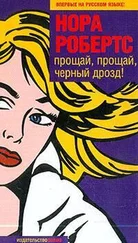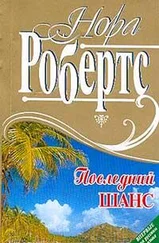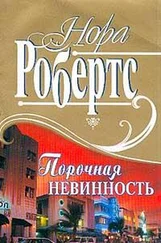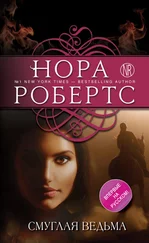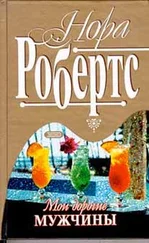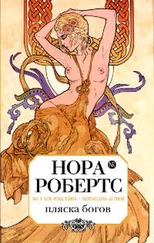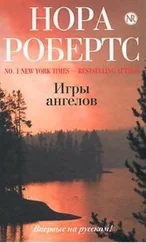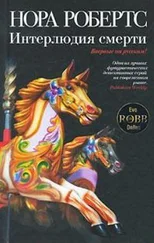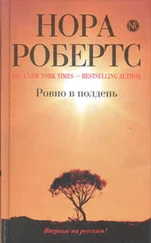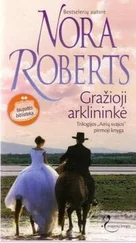A second batch, white and pure and scented with vanilla, and a third to make the scent—for three was a good number—green as the forest and perfumed with pine. Seasonal, she thought, and the season on them, so a half dozen sets should do.
The next she made perhaps she’d bring in spring.
Satisfied with the work, she glanced at the clock, saw it was nearly half-two. So the man was late, but that was fine as she’d had time to finish as she’d wanted.
But she’d be damned if she’d wait for him on the next job of work.
She took off her apron, hung it up, made herself some tea, and took two biscuits from the jar. With them, she sat, opened Sorcha’s book, her own, her notebook, her laptop.
In the quiet alone, she began to study all they’d done before, and how they might do it better.
He came in—fully thirty-five minutes late—and drenched. She barely spared him a glance, and said, firmly, “Don’t track up my floor.”
He muttered something she ignored, dried himself quickly. “There’s no point in being annoyed I’m later than I said. One of the horses took sick and needed tending.”
She often forgot he had work of his own. “How bad?”
“It was bad enough, but she’ll be all right. It’s Maggie, and a sudden stable cough. The medicine might have righted her, but . . . well, I wouldn’t risk it.”
“You wouldn’t, no.” And there, she knew him. His softest spot was for animals, for anything and anyone who needed tending. “And couldn’t.” And it had been bad enough, she could see that now as well in the fatigue in his eyes.
“Sit. You need some tea.”
“I wouldn’t mind it, or a couple of those biscuits I smell. The ginger ones?”
“Sit,” she said again, and went to turn up the heat on the kettle.
But he wandered around, restless.
“You’ve been working, I see. New candles not yet set.”
“I’ve a shop to fill. I can’t spend every moment of my day on bloody Cabhan.”
“You can spend it taking offense from me where none was meant. And as it happens I want some candles for myself.”
“Those just made are for gift sets.”
“I’ll have two of those then, as I’ve gifts to buy, and for more . . .” He wandered over to some shelves. “I like these you have here in the mirror jars. They’d shine in the light.” He lifted one, sniffed at it. “Cranberries. It smells of Yule, so that suits, doesn’t it? I’d have a dozen.”
“I don’t have a dozen of those, exactly, on hand. Just the three you see there.”
“You could make the rest.”
She made the tea, slanted him a look. “I could. You’ll have to wait for them until tomorrow.”
“That’ll do. And these tapers as well, the long white ones, the smaller red.”
“Did you come to work or to shop?”
“It’s a fine thing to do both in one place, at one time.” He took what he wanted, set it all on her counter for later.
After he sat, lifted his tea, he looked directly into her eyes. Her heart might have skipped, just once, but she ignored it.
“On the other side of the river, as we knew before. He gathers in the dark, in the deep. A cave, I think, but when and where I don’t know, not for certain.”
“You looked for him. Bloody, buggering hell, Fin—”
“Through the smoke,” he said, coolly. “No point thrashing about on a filthy day like this. I looked through the smoke, and like smoke, it hazed and blurred. But I can tell you he’s not as weak as he was, even days ago. And something’s with him, Branna. Something . . . else.”
“What?”
“Whatever, I think, he bargained with to be what he is, to have what he has. It’s darker yet, deeper yet, and I think . . . I don’t know,” he murmured, rubbing his shoulder where the mark dug into him. “I think it plays him, I think it uses him as much as he uses it, and in his weakness I could see that much. More than I have before. It’s a sense only, this other. But I know, and for certain, he heals, and he will come again before much longer.”
“Then we’ll be ready. What did we miss, Fin? That’s the question. So, let’s find the answer.”
He bit into a biscuit, smiled for the first time since he’d come in. “I might need more than two of these to sustain me while going over these bloody books again.”
“There’s more in the jar if you need them. Now.” She tapped her book. “The potion first.”
4
IT PAINED HIM TO LOOK AT HER—SO CLOSE, BUT DISTANT as Saturn. It sustained him, far more than ginger biscuits, to see her face, hear her voice, catch her scent, just hers, among the others wafting through her workshop.
He’d tried everything he knew to kill his love for her. He reminded himself she’d turned from him, cast him aside. He’d taken other women, tried to fill the abyss she’d left in him with their bodies, their voices, their beauty.
He’d left his own home, often for months at a go, just to put himself away from her. Traveling, rambling, to places near and far, foreign and familiar.
He’d made his fortune, and a good, solid one, with work, with time, with wit and grit. He’d built a fine home for himself, and had seen to it his parents had all they needed, though they’d moved to New York City to be near his mother’s sister. Or, he often thought, to be away of any talk or thought of magicks and curses. For that he couldn’t blame them.
No one could say he’d wasted his life or his skills—magickal or otherwise. But nothing he’d done had eroded even a fraction of that love.
He’d considered a potion, a spell, but he knew love magick, to bring it or remove it—held consequences far beyond the single person who wished for it, or wished it gone.
He would not, could not, use his gift to ease his heart.
Was it worse or better, he often wondered, knowing she loved him as well, she suffered as well? Some days, he admitted, he found some solace in that. Other days it buggered the living hell out of him.
But for now neither of them had a choice. They must be together, work together, join together for the single purpose of destroying Cabhan, for defeating him, for ending him.
So he worked with her, through argument and agreement, in her lovely workshop over endless cups of tea—and finally a bit of whiskey in it—poring over the books, writing out a new spell neither of them was satisfied with, and again, going over every step of the two previous battles.
And neither of them devised anything new, found another answer.
She was the canniest witch he knew—and all too often the strictest in her ethics. And beautiful with it. Not just the face and form, all that glorious hair, those warm gray eyes. What she was, the power and presence of it, added more, and her unstinting devotion to her craft, to her gift—to family—more still.
He was doomed to love her.
So he worked with her, then paid for the candles—full price, he thought with amusement, for the gods knew Branna O’Dwyer was a practical witch, and left her to drive home through the steady rain.
He checked on Maggie first, pleased with her progress. He gave the sweet-natured mare half an apple and some of his time and attention. He visited the rest of the horses, giving them time as well. He had pride in what he’d built here, in what he and Boyle had built here and at the rental stables. Pride, too, in the falconry school nearby.
Connor ran it like a dream, Fin thought.
If not for Cabhan, he could leave tomorrow for India or Africa, for America or Istanbul, and know Boyle and Connor would take care of all they’d built.
Once Cabhan was done, he’d do just that. Pick a spot on the map, and go. Get away, see something new. Anything but here for a bit, for here was all he loved far too deeply.
Читать дальше
